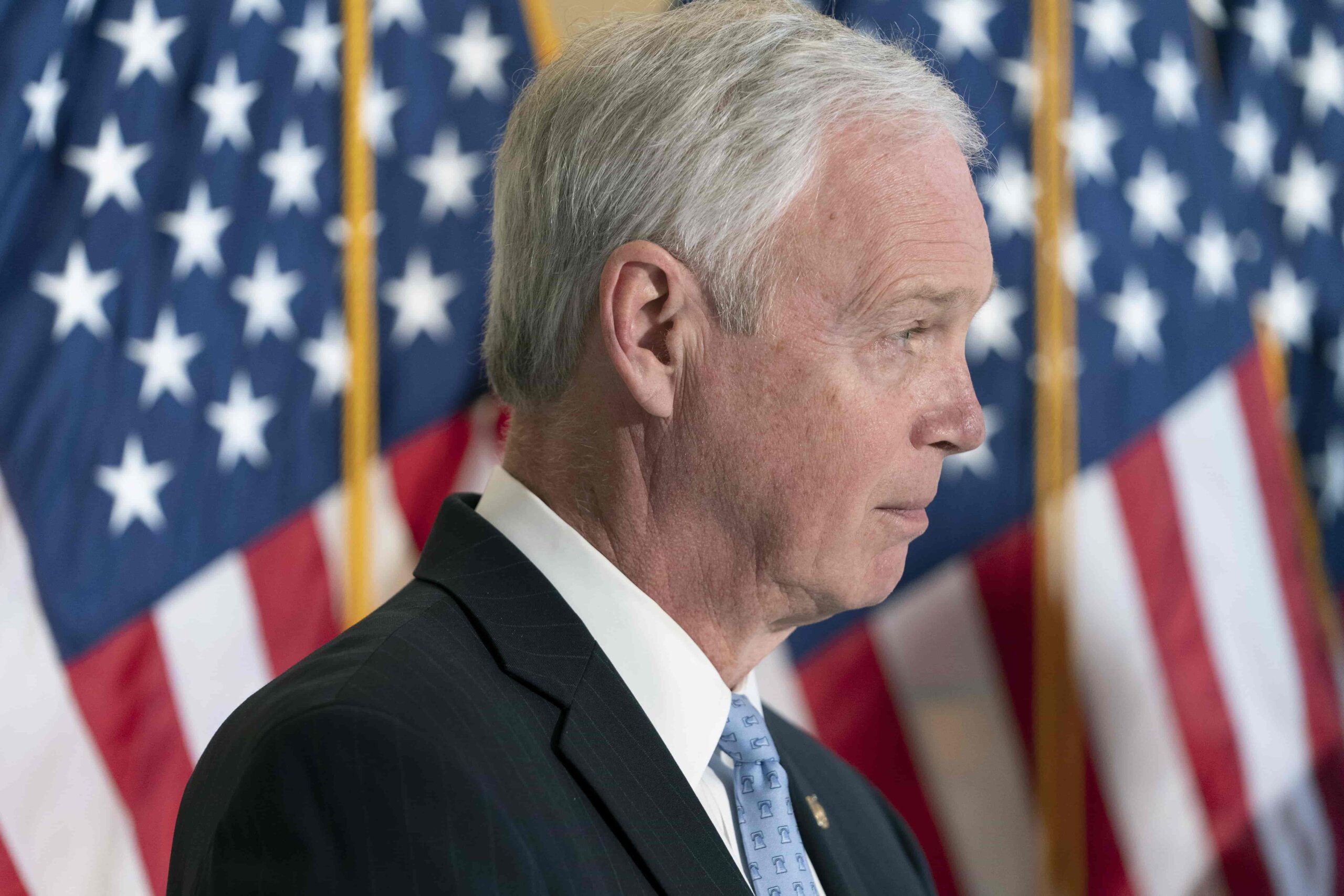Despite a strong show of bipartisan support in a House vote last month, the Democrats’ latest effort to codify same-sex marriage is under threat by Republican lawmakers.
In an August 19 speech at the Kenosha County Fair, Senator Ron Johnson (R-Wisc.) called a bill to protect same-sex marriage “completely unnecessary,” according to Newsweek. The comments marked a major change in Johnson’s position on the Respect for Marriage Act, which would enshrine the right to same-sex marriage in federal law. Earlier this summer he appeared to express support for the bill, but the Republican has recently backtracked, saying that his vote was never guaranteed.
“I’ve never said I would support it,” he told Axios in an August 2 interview. “I said I didn’t see a reason to oppose it.”
Democrats in Congress introduced the Respect for Marriage Act in the wake of the Supreme Court’s June ruling in Dobbs v. Jackson Women’s Health Organization. In addition to rolling back abortion rights across the U.S., a concurring opinion from conservative justice Clarence Thomas called into question the validity of key LGBTQ2S+ rights victories like 2015’s Obergefell v. Hodges, which secured the right to same-sex marriage in all 50 states.
“I’ve never said I would support it. I said I didn’t see a reason to oppose it.”
But Johnson, who is up for reelection this fall, didn’t seem to think there was any merit to Thomas’ threats. In his recent speech, he said the court would never overturn Obergefell as it “would impact millions of people,” whereas overturning Roe was about protecting “life in the future.”
In comments to the media, Johnson further accused Democrats of “opening up a wound that had really healed” by introducing the legislation in the first place. “I’ve always been supportive of civil unions,” he told the Wisconsin ABC news affiliate WISN-TV following the speech. “The Supreme Court ruled on gay marriage and, ‘It’s okay. That’s the decision. Let’s move on.’”
In the interview, Johnson also mentioned that he is drafting an amendment to the Respect for Marriage Act intended to protect religious freedom. Sen. Mitt Romney (R-Utah), another undecided Republican swing vote, has also expressed interest in this amendment, which would include “conscience protections” that allow religious leaders to refuse to participate in same-sex weddings. Romney expressed similar concerns last year while pulling his support for the Equality Act, which would codify equal protections for LGBTQ2S+ people in federal law.
Democrats will need potential swing votes like Johnson and Romney if they hope to pass the bill through the U.S. Senate. The upper chamber of Congress is currently split 50-50 by party, and if every Democrat votes in favour of the bill, 10 more Republican votes will be needed to ensure the act’s passage.
In July, the U.S. House of Representatives passed the Respect for Marriage Act by a margin of 267-157, with 47 Republicans joining Democrats in supporting the legislation. However, the House vote also saw its fair share of GOP drama: one lawmaker, Rep. Glenn Thompson (R- Penn.), voted against the bill despite attending his gay son’s wedding just three days later.
The legislation will not be up for consideration in the Senate until after the chamber’s August recess.


 Why you can trust Xtra
Why you can trust Xtra


